Paradise Lost made albums that historically matter to the context of metal and The End reissues do these albums justice
Re-Issues Released:
Shades Of God
Icon
Draconian Times
One Second
Reflection
Evolve
“Your talk is always contradiction.”
You will not find a more punctual line from a Paradise Lost song. It also comes from one of the most accessible albums of their career—”Just Say Words” from One Second.
Paradise Lost – Just Say Words
Tapping the spectrum of human emotion is something charming to the stance on Paradise Lost’s lyrics. It’s not as much direct finger pointing from the band as it is simple observation. They explore an observation of the human spirit, spinning an endless tale of mortality. What am I? Why am I? These are the things the band has tried to answer in their over-20-year career span.
A post-Draconian Times, post-coital glow emanates from the darkness and into another level of darkness. The production, mixing, and the stars in the universe came together to make one of the greatest metal albums of the 1990s.
Paradise Lost – One Second
The title track opener displays a bravado that attests to the stability of this band. It also proves they dig deeper into their collective conscience to create a richer appreciation of the human emotion. No matter how dark they may prowl around in, their power is simply in sound.
Speed and intensity is never a factor on this album. “Soul Courageous” has that punk-like feel. But while metal was stewing over the precision of extreme guitar solos of the ’80s and powerful theatrics, this foundation was a catalyst to the whirlwind of organic guitar work. It would have been the historical factor for the band if Draconian Times did not come right before it.
One Second was also the album that put the nail on the coffin, so to speak, to their career. Lesser acclaimed albums were released in the early 2000s. Their darkness was now shrouded by a whirlwind of electronics. It only confused fans of their earlier albums while having newer fans scratching their heads over albums like Shades Of God. Icon and Draconian Times could only be stretched so far.
Looking back, you can call these albums means to a perpetual ending that has not played out yet. For The End, One Second is an appropriate cut off to their career of re-issues. These are the albums that historically matter not just to the livelihood of this band, but for the history and context of metal, in general.
Shades of God
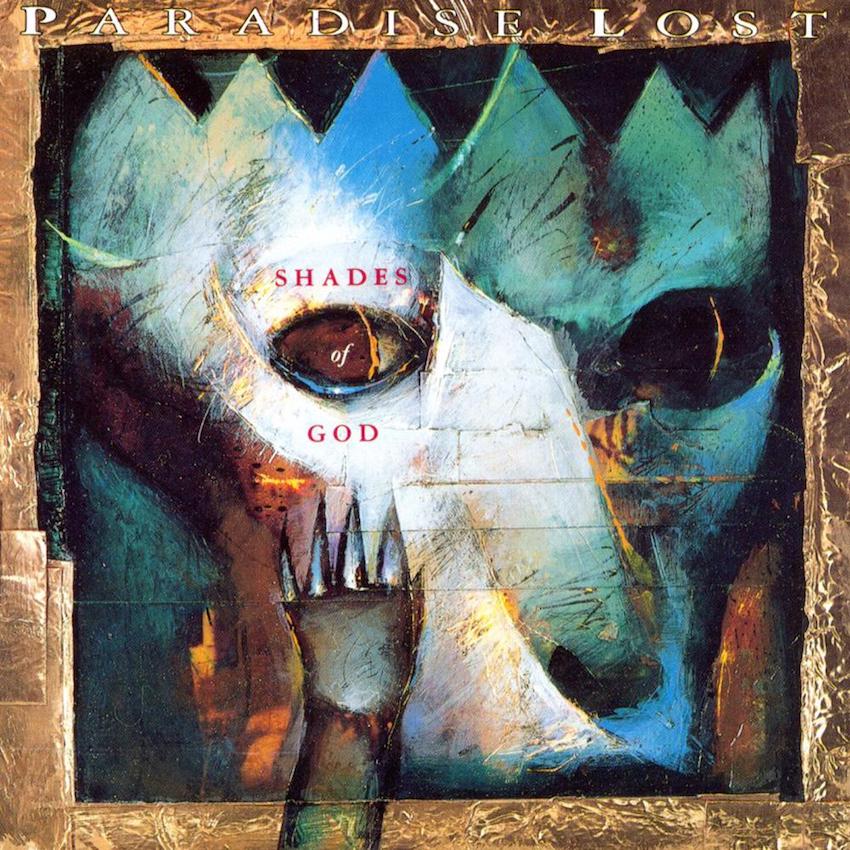
The End starts with Shades Of God. It gives us a glimpse of the early years for the band. The reissue is cleaner than what Paradise Lost originally produced. Shades of God is a gritty and raw underworld that may be obscured by their later works. However, it is equally important in correlation with what was going on in the early ’90s.
Metal was wrapped in a scene that was drifting from thrash metal technicality. The Earache Records and Century Media of the music world sought to bring in more depth and uncertainty than what ’80s metal could provide. For Paradise Lost, they were just following suite. “Mortals Watch the Day” demonstrates a fantastical approach with epically guttural results. “Crying For Eternity” is where we begin to see a contradiction between the doom-laden sound and what Paradise Lost became. But it does not last long as “Daylight Torn” follows their influences and the sway Black Sabbath developed in the ’70s. “Your Hand In Mine” could be interpreted as the other Type O Negative. But “As I Die” rocks out in a most peculiar way. It was a glimpse of the future and their penchant for strong and poignant songwriting.
Paradise Lost – As I Die
Even from the beginning, What Nick Holmes was singing about was not your typical death/doom lyrics. They were personal and metaphysically important in the scope of the human conscience. It was a romantic approach to what technical bands like Carcass and Voivod were contriving. For us, we understood and felt the pain and torture of real world problems. Not just escapism, this was a product of the real world where we would see more of the struggle on Icon.
The reissue adds two bonus tracks: “Rape of Virtue,” a more powerful album outtake worth bringing back to life, and the Atomic Rooster cover of “Death Walks Behind You.”
Icon
![]()
Working with Simon Effemy on Shades of God, the ban developed a great relationship that continued into Icon and Draconian Times. For lead guitarist Gregor Mackintosh, Icon was the album that was the most important of their career and where they discovered their sound.
Shades of God was primarily about the band trying to figure it out. With Icon something changed. Holmes and the band fine-tuned their sound. Instead of enraged shouting about death and apocalyptic ideas, he worked on adding finesse to his aggression. Add the addition of keyboards and the term “gothic metal” to the mix—they were coined as the first band to develop the phrase (Holmes’ 2008 interview in Kerrang!)— Paradise Lost lost its power trip doom metal band image.
There was poetry and artistic flow into songs like the stoner rock anthem “Embers Fire.” What this song demonstrated for the first time was what became the traditional song structure for the band. They wrote haunting synth intros that bleed into power rock. This builds up Holmes’ vocals like he has been chosen to recite Mackintosh’s lyrics like it was epic poetry.
“Joys of the Emptiness” goes deeper down the rabbit hole of emotional devastation. “True Belief” shares the sentiments. However, this song points more toward what bands like Bauhaus and Sisters of Mercy created. They just turned their power metal into something creepy. It is a perfect accentuation to the cover art. The image portrays a gothic vision of a woman reaching around a statue that spirals outward in a ritualistically intoxicated effect.
For The End’s reissue, Icon adds “Sweetness” as a bonus track. The song isn’t as much a stand out like “Rape of Virtue,” but it serves as an extension to what Icon was all about. The album ends with a fantastic live version of “Your Hand In Mine.” This is an example as to how great the band was live. For the tour of this album, they teamed up with Sepultura for their Chaos AD album, a memorable time for the genre.
Draconian Times
As Icon may have been quintessential to the band, Draconian Times was quintessential to the listener. This album has one of the more eye-raising album covers of the genre (Holly Warburton’s marriage between the gothic and metal).
Paradise Lost – Enchantment Live
Even more so than the song “One Second,” “Enchantment” has one of the most distinct intros Paradise Lost could have created. The band furthers their experimentation with intricate composition. A minute into the song we finally get to the heart of where the band mentally stood. An proud statement to the band’s faithfulness to their sound, it immediately told us that this album would perform beyond expectations.
Fans of the early Paradise Lost sound were getting fed up with this introspective view while it paved the way to newer, lasting fans. Draconian Times did not completely isolate as the vocals and power chord base still appealed to the muscular brawn of their early sound. The lyrics sided more with the synths. It became an even more Dante-esque descent into creative tortured art prose.
Jorn van Schaik from Sputnik Music called it the Metallica syndrome. The band battled between the heavier side of their earlier albums compared to the “Hetfield-esque bellow” of their later albums. And van Schaik is right.
Sacrifices had to be made for the band to not be pigeonholed into a specific niche. Paradise Lost was expanding and exploring. Draconian Times was the result. “Yearn For Change” produced a delicate guitar atmosphere while “Forever Failure” is a first to incorporate sound bites from Charles Manson. It became a distinct and direct reflection to a specific social instance.
Paradise Lost – Hallowed Land
“Hallowed Land” is the standout of the album, spurring a video and becoming a live favorite. And as the power guitars churn into deep synths and piano interludes, Holmes expresses a croon that spins confliction to conviction. On the CD you also get several live versions of the songs, as well as a few demos that brings out the band’s crudeness if you want to follow that path. Missing a drummer, you can envision a distinct difference between the development and the final product. How Draconian Times came from these demos is amazing.
One Second
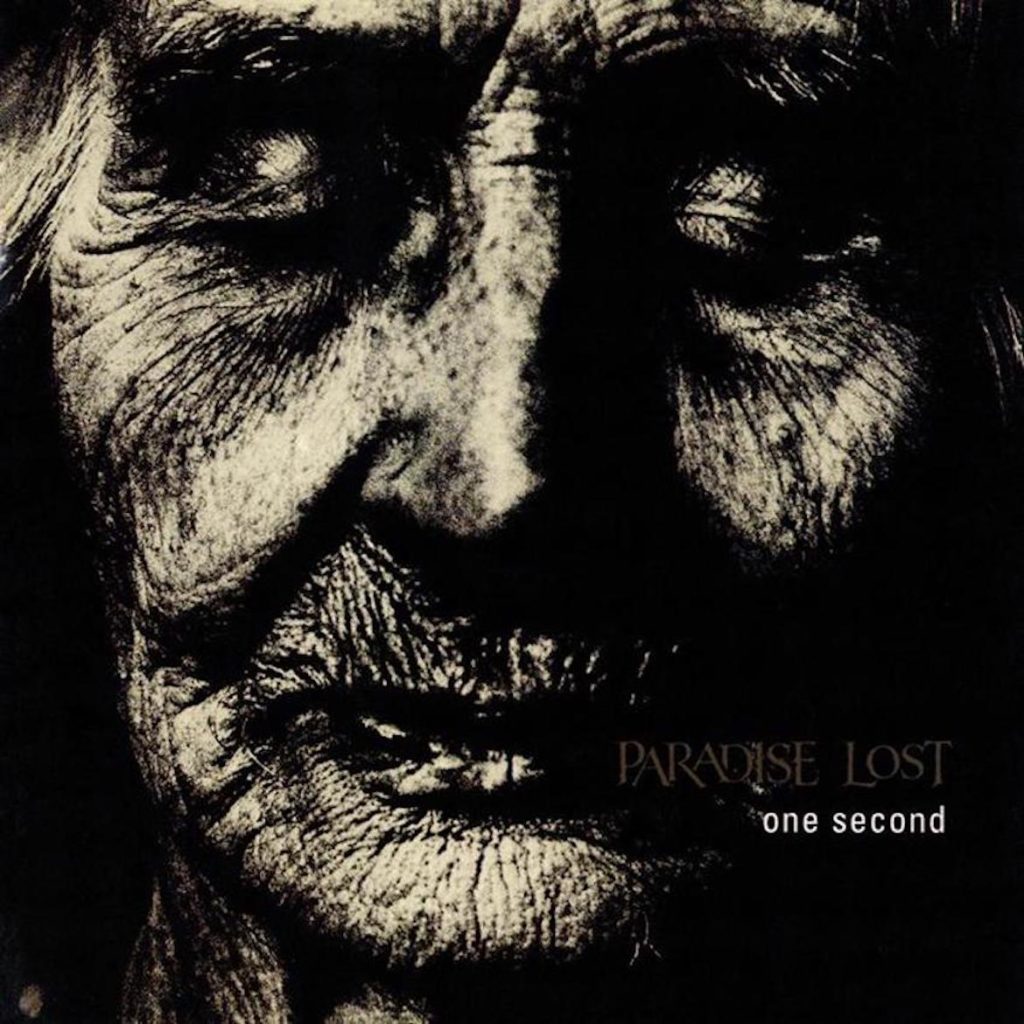
“Hallowed Land” became a transition into One Second. It showed that the band could get away with utilizing more synths into their metal and extrapolating every element of gothic construction into their sound without ever sounding kitschy, schlocky or plain cheesy. If Draconian Times was not an estrangement their early fan base, One Second is. It also estranged the band because no longer could they go back.
They had pigeonholed themselves into this synthetic goth metal paradigm. The more they fed fans the synths, the more fans expected it of them. The Smith’s cover and bonus track of One Second, “How Soon Is Now” even seems a little out of body compared to the rest of the album no matter how well the band respectively covers the song and appropriate in form to Paradise Lost’s ideology.
The Stillborn cover of “Albino Flogged in Black” sounds more like an outtake to Type O Negative’s October Rust. That or Tiamat. It still does not deface the potential this album had on the structure of the genre. You cannot find a better demonstration of gothic metal than this album. Holmes has been building his vocals for this moment and with the pristine production, this album is damn near perfect.
Reflection
What’s left for The End’s reissues is Reflection? They released a greatest hits retrospect of the band that features several songs from the Gothic album. They also put out a great live album titled Evolve.
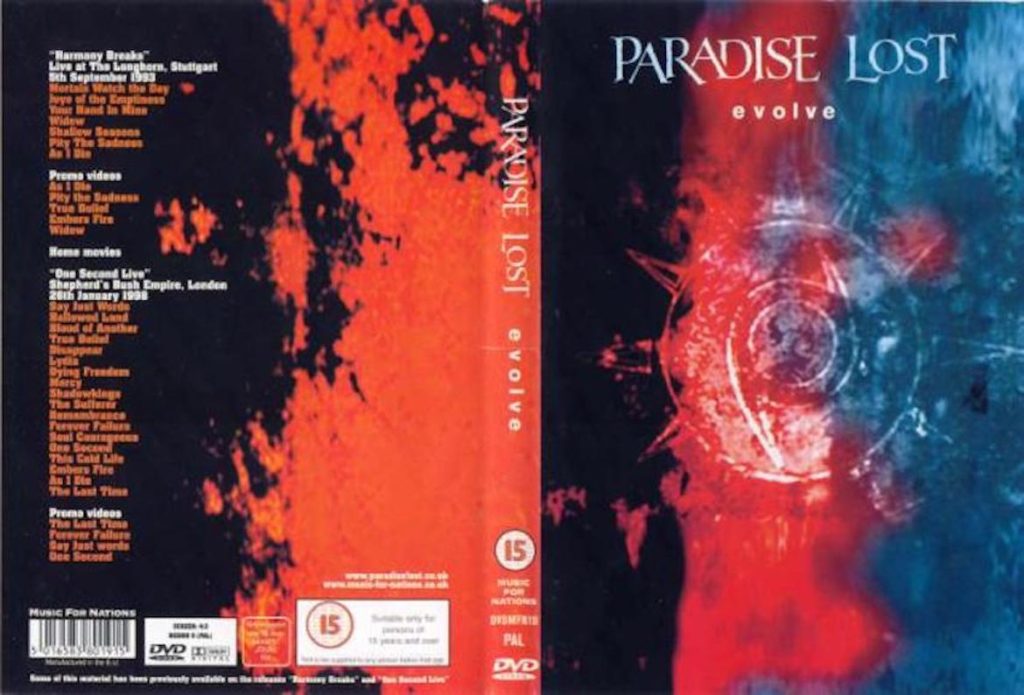
What The End has done to keep these albums alive and thriving is dedication to core existence of this band. I cannot stress how important these re-issues are. I have studied them and placed them into the context of what was going on around them at the time. From Type O Negative’s Bloody Kisses versus Icon and Shades of God versus Godflesh and Napalm Death, you have to look at the English scene that transcended this band. What I can conclude is that Paradise Lost never followed a trend. But they did exactly what they were going to do even if it meant at the consequence of their fan base.
In one instance they were well ahead of their time, in another, they were guiding the flow of the times. Paradise Lost is purely timeless as well as progressive in thought.
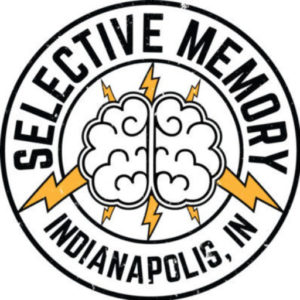


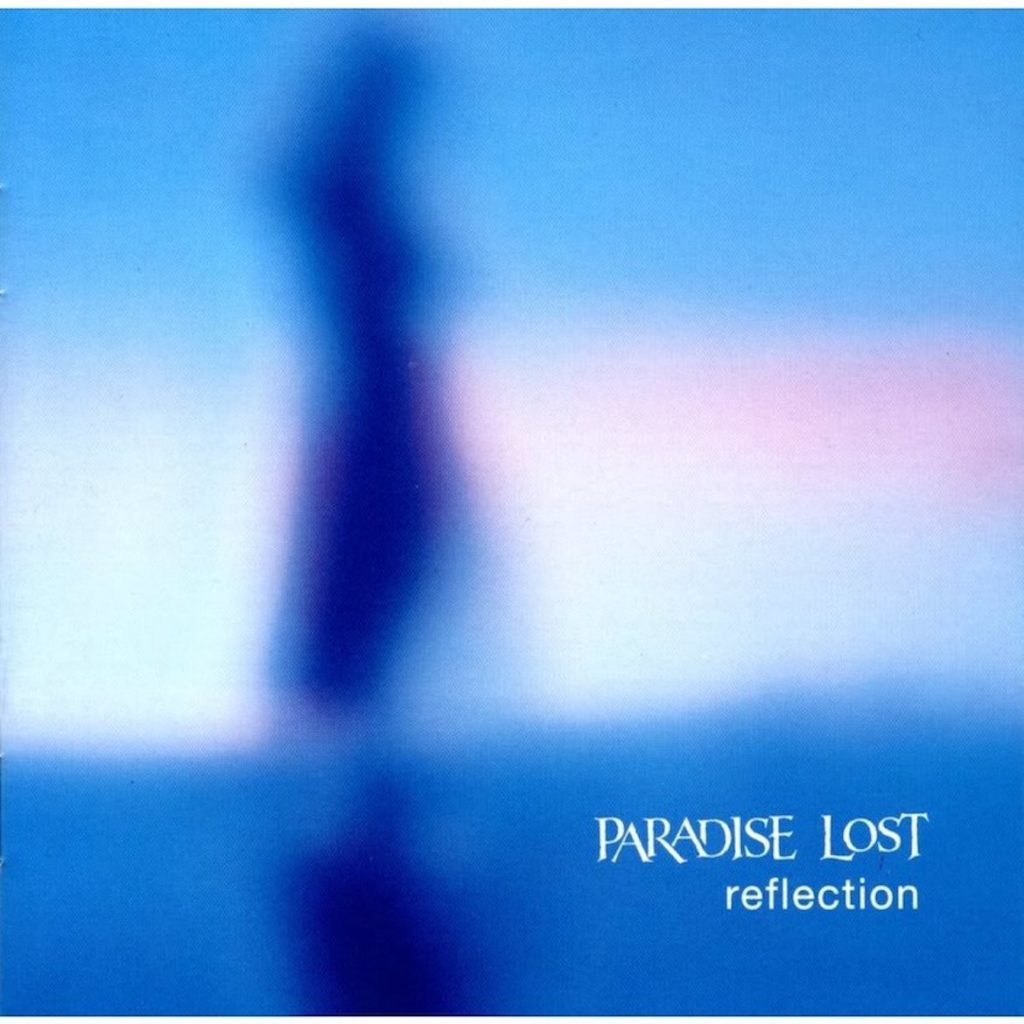
No Comment! Be the first one.